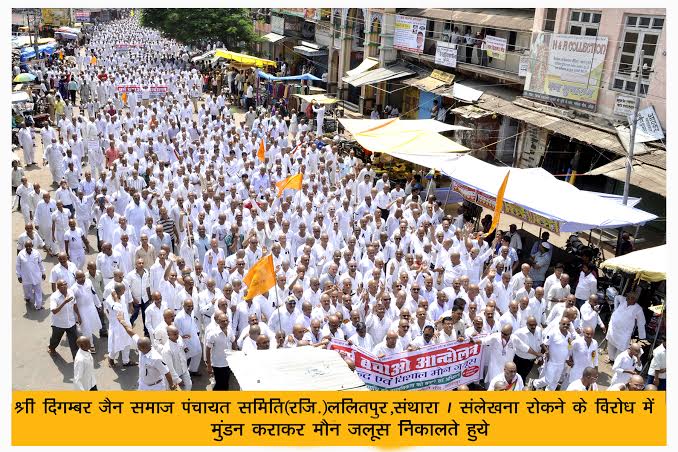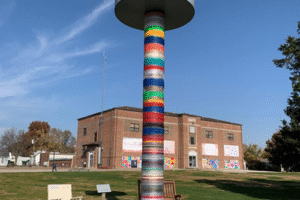In a massive show of unity, devotion, and peaceful resistance, more than 17,000 members of the Shri Digambar Jain Panchayat Samiti (Regd.), Lalitpur, along with several Jain organizations and devotees, came together to protest the Rajasthan High Court’s order banning the ancient Jain religious practice of ‘Santhara’ (also known as Sallekhana).
The silent march past and mass head-shaving ceremony took place on August 24, 2015, at the Collectorate Office of District Lalitpur, Uttar Pradesh. In a unique and powerful form of protest, participants — including men, women, and elders — voluntarily had their heads shaved in solidarity, creating a new record of collective religious and civil resistance.
The event was spiritually and morally guided by Acharya Shri 108 Vidhya Sagar Ji Maharaj, Param Vandniya Aarika Maa Purnmati Mata Ji, and organized with the support of the Digambar Jain Panchayat Samiti (Regd.) and the wider Jain community of Lalitpur.
Santhara, a centuries-old voluntary religious practice involving a peaceful and spiritual vow to embrace death through fasting, is considered by Jains as a sacred rite. The High Court’s ruling sparked nationwide protests from the Jain community, which sees the practice as an expression of faith rather than suicide.
This massive event in Lalitpur not only amplified the collective voice of the Jain community but also stood as a firm assertion of religious freedom, cultural identity, and constitutional rights. Participants maintained silence throughout the march as a symbol of the peaceful and disciplined ethos of Jainism.
Community leaders expressed hope that the demonstration would urge the judiciary and government to reconsider the ban and recognize the spiritual significance of Santhara in Jain philosophy.







